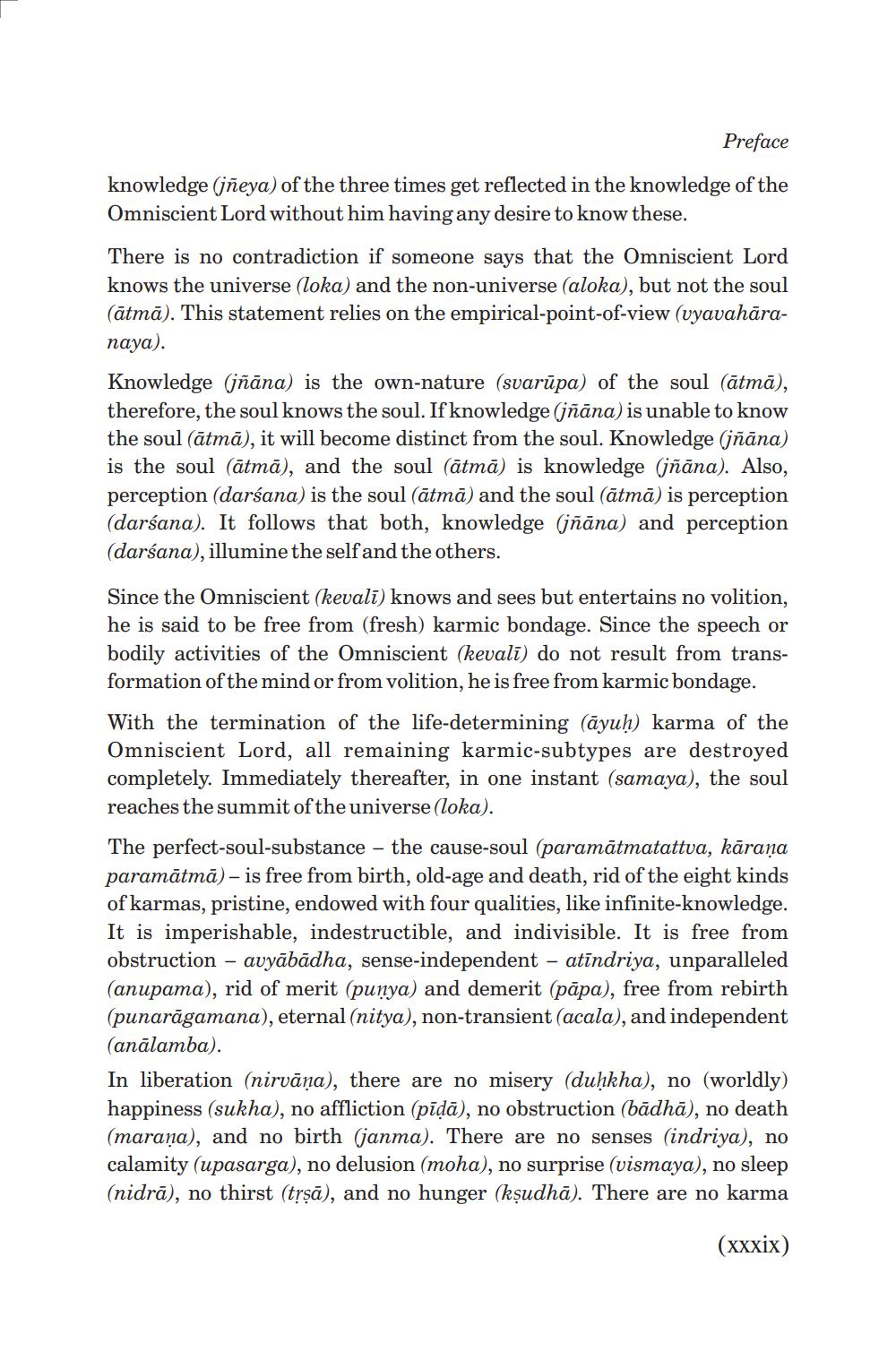________________
Preface
knowledge (jñeya) of the three times get reflected in the knowledge of the Omniscient Lord without him having any desire to know these.
There is no contradiction if someone says that the Omniscient Lord knows the universe (loka) and the non-universe (aloka), but not the soul (ātmā). This statement relies on the empirical-point-of-view (vyavahāranaya).
Knowledge (jñāna) is the own-nature (svarupa) of the soul (ātmā), therefore, the soul knows the soul. If knowledge (jñāna) is unable to know the soul (ātmā), it will become distinct from the soul. Knowledge (jñāna) is the soul (ātmā), and the soul (ātmā) is knowledge (jñāna). Also, perception (darśana) is the soul (ātmā) and the soul (ātmā) is perception (darśana). It follows that both, knowledge (jñāna) and perception (darśana), illumine the self and the others.
Since the Omniscient (kevali) knows and sees but entertains no volition, he is said to be free from (fresh) karmic bondage. Since the speech or bodily activities of the Omniscient (kevalī) do not result from transformation of the mind or from volition, he is free from karmic bondage.
With the termination of the life-determining (ayuḥ) karma of the Omniscient Lord, all remaining karmic-subtypes are destroyed completely. Immediately thereafter, in one instant (samaya), the soul reaches the summit of the universe (loka).
The perfect-soul-substance the cause-soul (paramätmatattva, kāraṇa paramātmā) – is free from birth, old-age and death, rid of the eight kinds of karmas, pristine, endowed with four qualities, like infinite-knowledge. It is imperishable, indestructible, and indivisible. It is free from obstruction - avyābādha, sense-independent - atīndriya, unparalleled (anupama), rid of merit (punya) and demerit (papa), free from rebirth (punaragamana), eternal (nitya), non-transient (acala), and independent (anālamba).
-
In liberation (nirvāṇa), there are no misery (duḥkha), no (worldly) happiness (sukha), no affliction (pīḍā), no obstruction (bādhā), no death (marana), and no birth (janma). There are no senses (indriya), no calamity (upasarga), no delusion (moha), no surprise (vismaya), no sleep (nidra), no thirst (trṣā), and no hunger (kṣudha). There are no karma
(xxxix)




